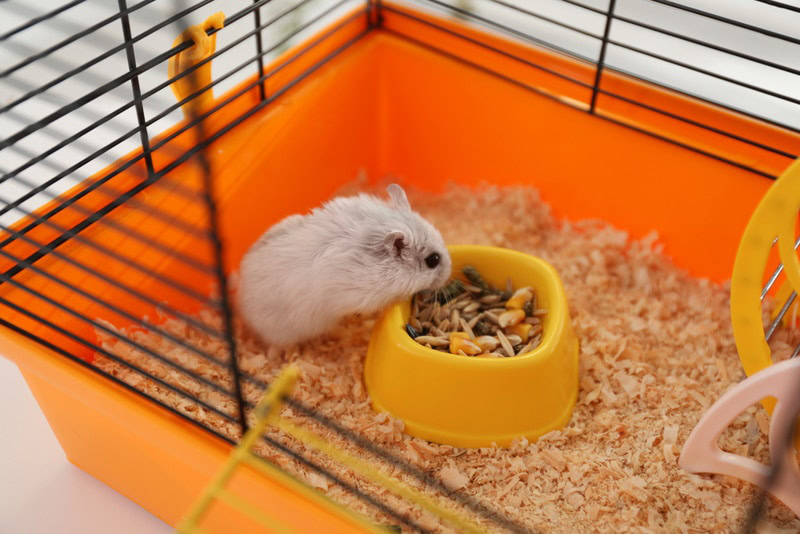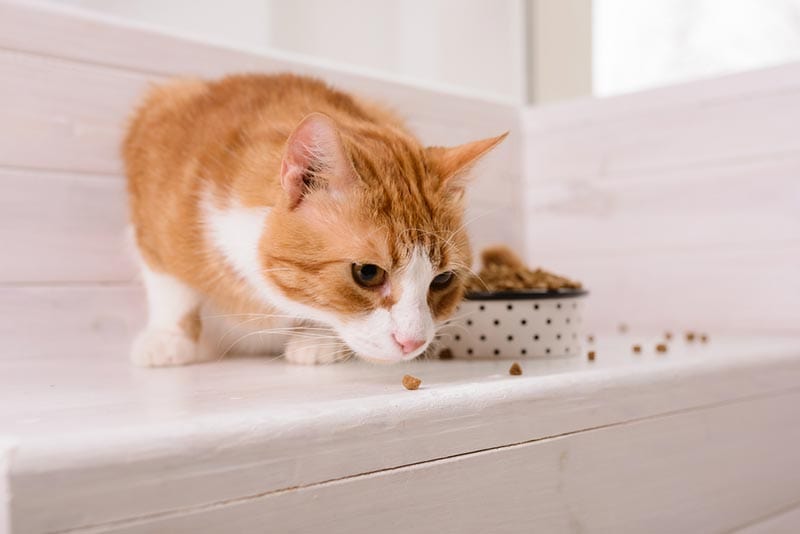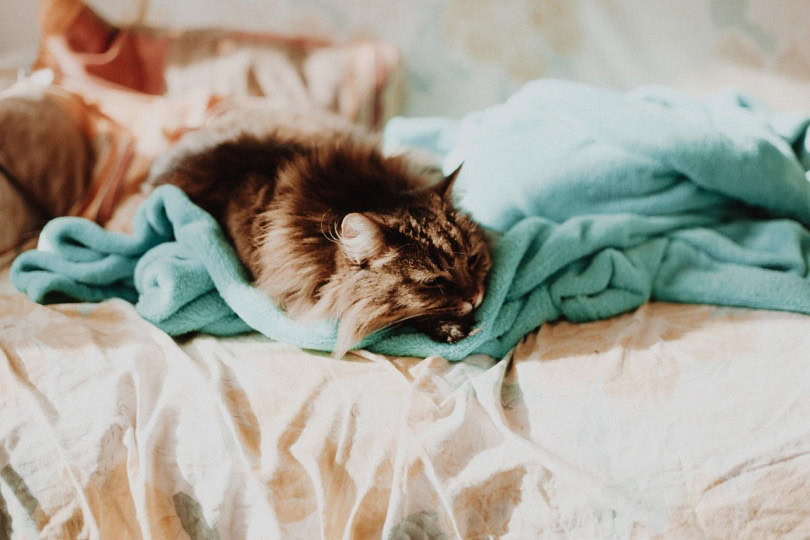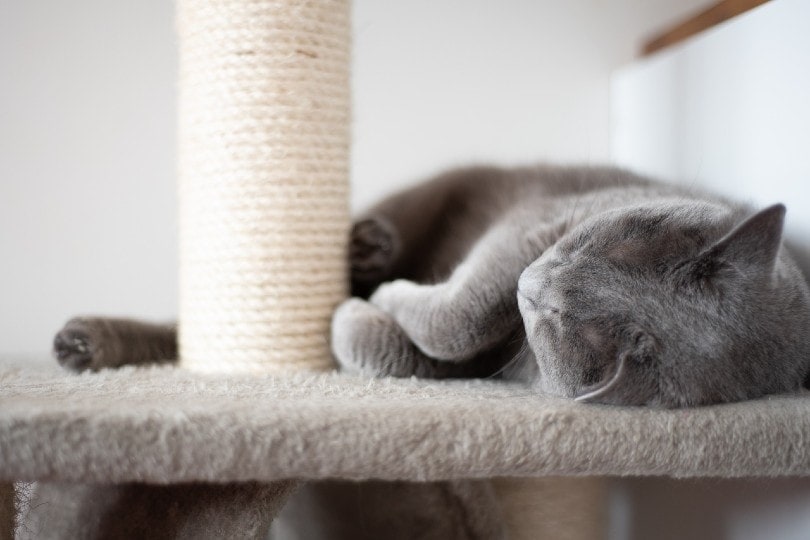VET APPROVED

The information is current and up-to-date in accordance with the latest veterinarian research.
Learn more »Click to Skip Ahead
A house full of pets is a dream come true for many of us. When we are young and ask our parents about every animal under the sun, often the answer is no. As we get older and have lives of our own, we decide which animals we have under our roof. Of course, not all pets will get along, and this will greatly depend on how they see each other in the animal world of prey and predators, alongside their individual characters, early socialization, and life experiences, as well as which natural behaviors they would normally be exhibiting.
Unfortunately, there are pets you can bring into your home that your kitty will show a particular interest in, due to their instinct. One of these pets is a hamster. Hamsters are adorable little handfuls of joy, but will a cat eat a hamster if they get the chance? Hamster owners may not like the answer to this question, but yes, your cat may try to kill your hamster if given the opportunity, although they may not always eat it. Let’s take a deeper look at this question and how you can potentially have both a cat and a hamster in your home.

Do Cats Eat Hamsters?
The relationship between cats and rodents is well documented. We’ve all watched Tom and Jerry, right? Cats are natural predators. You may see your fluffy kitty passed out on the couch and think there’s no way they could stalk prey, but deep down, those instincts are still there. Cats are also obligate carnivores. Yes, you give them kibble as part of their diet, but that kibble contains meat. If your cat was in the wild, they would feast on birds, small animals, and especially rodents. Hamsters are rodents. Therefore, hamsters can be prey for cats.
The idea of actually eating your hamster may not appeal to your kitty. That is if you provide them with a well-balanced diet. Domesticated cats don’t need to eat prey to survive. They get all their nutrition from the foods we give them. That doesn’t mean that they don’t want to hunt, pounce, and attack like they are intended, as it’s a part of their natural instinctive behavior. While your cat may not eat your hamster, as they often hunt for sport rather than hunger if given the chance, they would hunt it and in most scenarios, come out as the victor.
Can Cats and Hamsters Live Together?
While it may not be easy, pet lovers have had cats and hamsters in the same house for ages. Of course, if you plan on trying this, there are a few things you need to do so your hamster can be protected.
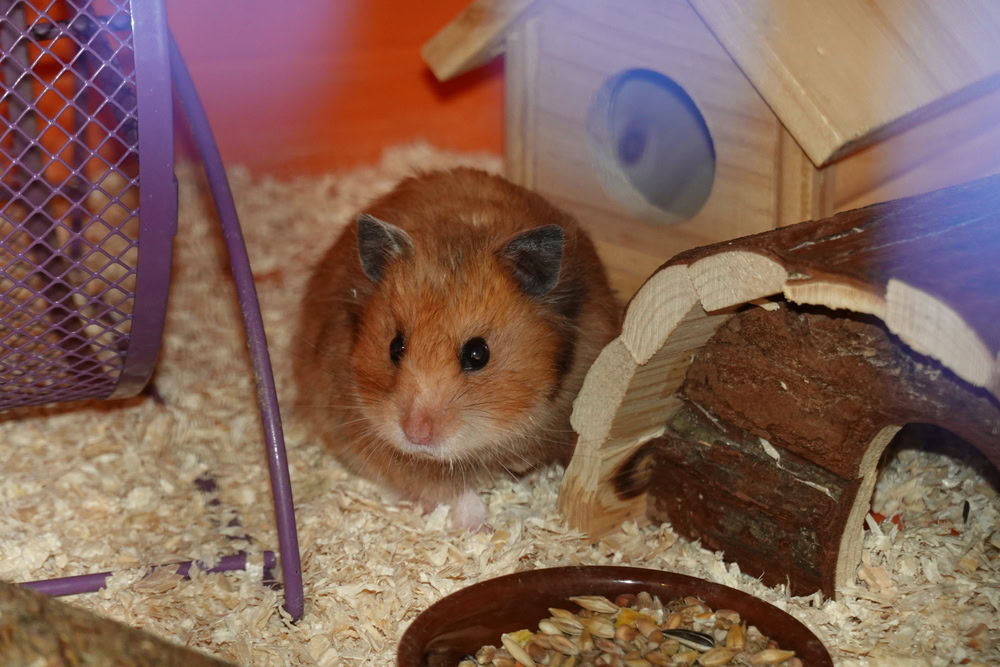
Be Careful Where You Place the Cage
Cats are notorious for being in places they shouldn’t be. You may think placing your hamster cage up high will keep the cat at bay, but that isn’t true. Cats enjoy climbing to new heights. They also like knocking things over. Make sure your hamster cage is situated where your cat can’t access it at all. If this happens, doors may fly open and grant your kitty access to your hamster or even if that doesn’t happen, your hamster will be extremely stressed at the very scent of a predator in their vicinity, which will negatively impact their health and wellbeing.
Secure the Hamster’s Room
We all know how skilled cats can be in finding the smallest nooks and crannies to get into or squeezing through the smallest window opening gap. The same goes for keeping them outside of rooms and areas we don’t want their regal presence in. It’s important to stress to all family members and guests that there is a good reason why your cat is not allowed in the same room as the hamster. This is the only way to keep the hamster safe and stress free, but it requires vigilance on your part. This means ensuring the doors are always securely closed and that the cat cannot get in any other way. Using an indoor pet camera can also help you keep an eye on your hamster.
Use a Suitable Cage
Although it’s crucial to keep your hamster in a separate room, well away from your cat, in the off chance the cat would somehow find a way in, the right hamster cage can be the literal barrier between your hamster and certain death. You need a sturdy cage made of durable, heavy-duty materials. Not every cat will, but some cats may chew on the cage in an attempt to reach the hamster inside. You should also ensure the cage has small slats. If the slats are big, your kitty’s paw may reach in. If this happens, their sharp claws could be extremely dangerous to your tiny hamster. Also, remember to secure all doors on your hamster’s cage. Cats are very smart and may figure out how to release the door so they can get to the prey inside. However, please ensure that your kitty can’t get in the hamster’s room in the first place.
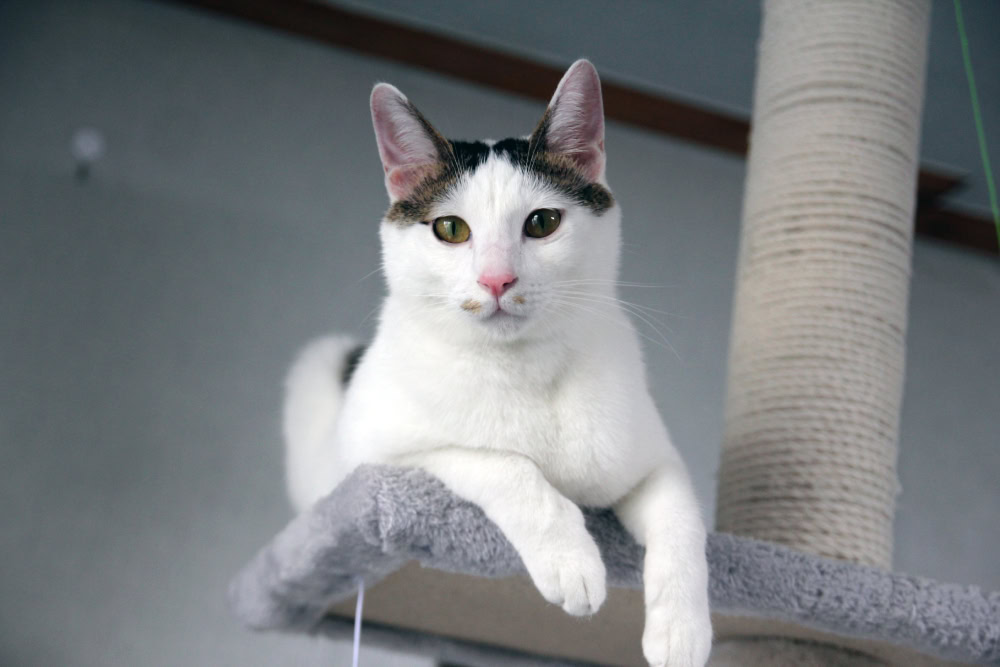
Can They Be Friends?
It would be lovely to see your cat and your hamster cuddling together on the bed, but that isn’t going to happen. Considering the strong prey-predator relationship between these two species, even introducing them is considered unnecessary, if not even dangerous and stressful, particularly for the hamster. There is no need for it, as both species can live happily and safely in their own secure place, without needing to be exposed to each other, which would only lead to stress, fear, and negative welfare in the hamster, and frustration in the cat. It’s important to respect the two species for who they are and strive to provide them with a healthy and long life.

Conclusion
Cats and hamsters can live in the same house, but the possibilities of your cat eating or harming your hamster are great, if they are both kept in the same room. If you want to have both of these pets, make sure you proceed with caution. The well-being of your hamster is in your hands. Your cat is simply acting on instinct when it comes to the presence of a new animal in the house, which in their eyes is considered prey.
Featured Image Credit: New Africa, Shutterstock
